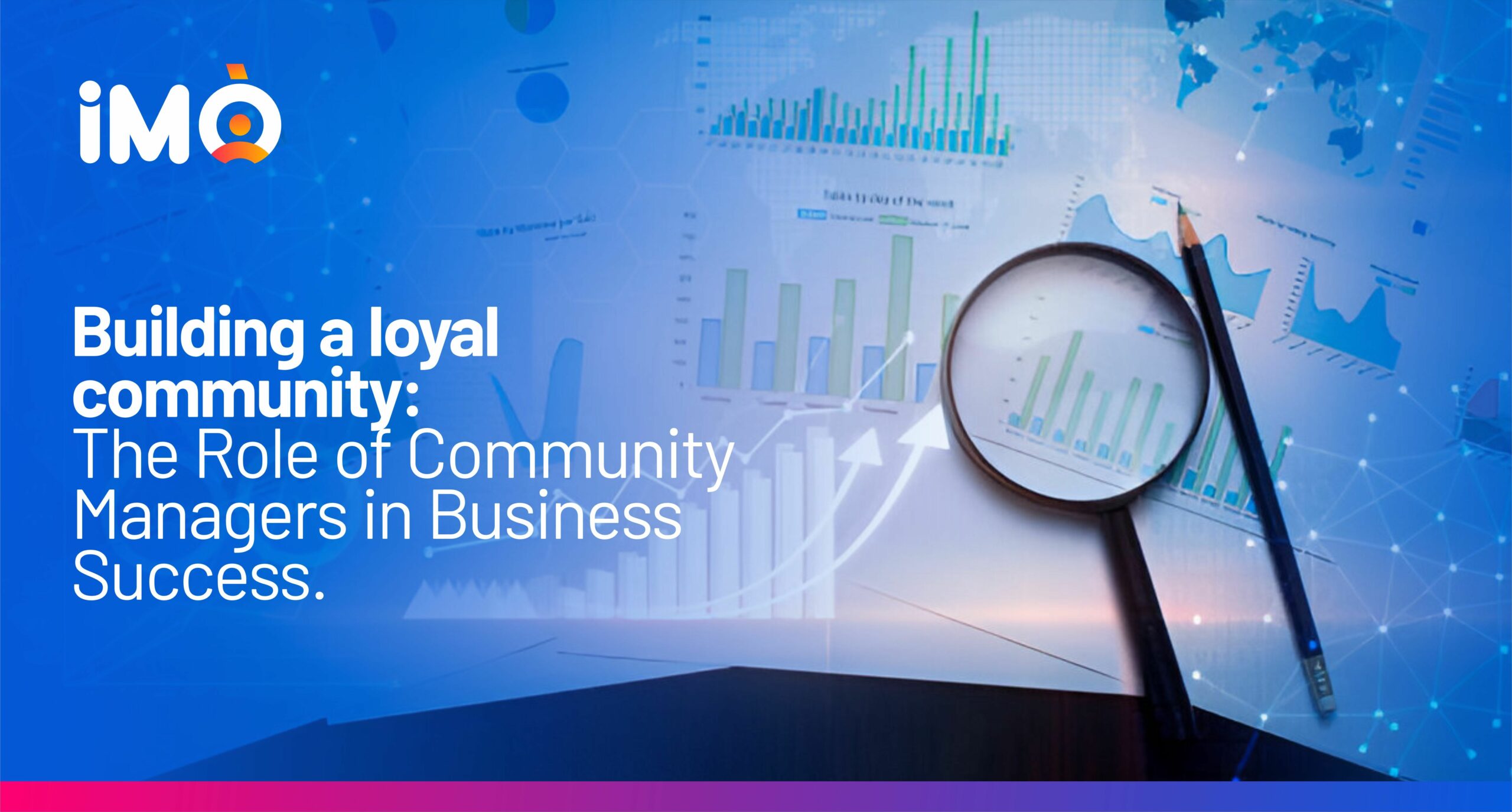Building a strong and loyal community around your brand is essential for business success and the role of the community manager in this process cannot be overstated. These professionals are the bridge between a company and its audience, fostering relationships that lead to sustained growth and brand loyalty. Understanding the importance of community managers and how they contribute to business success is essential for any organization looking to thrive in today’s competitive market.
The Evolving Role of Community Managers
The role of community managers has evolved significantly over the past decade. Originally, their responsibilities might have included managing social media accounts and responding to customer inquiries. Today, community managers are strategists, analysts, and brand ambassadors, tasked with creating and maintaining a positive, engaged community that aligns with the company’s values and goals. The importance of community managers has grown for businesses, either small or big, that are looking to create and build strong relationships with their customers.
Building a Loyal Community
A loyal community doesn’t just happen; it’s built through consistent, genuine engagement. It is the backbone of any successful business or organization, providing a foundation for long-term growth, advocacy, and customer retention. Fostering customer engagement and retention is crucial when building a professional online presence for your business. Community managers play a pivotal role in this process by:
- Creating Value-Driven Content: Community managers curate and create content that resonates with their audience. This includes blog posts, social media updates, newsletters, and more. The goal is to provide value that keeps the community coming back for more.
- Fostering Engagement: Engagement is key to building a loyal community. Community managers encourage interaction through questions, polls, discussions, and events. By actively participating in conversations, they build trust and rapport with community members.
- Listening and Responding: A successful community manager listens to the needs and concerns of the community. By addressing feedback promptly and effectively, they demonstrate that the company values its customers. This two-way communication is crucial for building loyalty.
- Hosting Events and Activities: Online and offline events can significantly boost community engagement. Webinars, live Q&A sessions, and community meetups provide opportunities for deeper connections and foster a sense of belonging among member
Strategies for Community Managers
To effectively build and maintain a loyal community, community managers should implement several key strategies:
1. Understand Your Audience: Knowing your audience is the foundation of any successful community. Community managers should analyze demographics, interests, and behaviors to tailor content and engagement strategies accordingly. Tools like surveys, polls, and analytics can provide valuable insights into what the community wants and needs.
2. Consistent Communication: Consistency is critical in maintaining community engagement. Regular updates, timely responses, and a steady stream of valuable content help keep the community active and interested. Community managers should develop a content calendar to ensure consistent communication.
3. Personalize Interactions: Personalization goes a long way in building a loyal community. Community managers should address members by name, acknowledge their contributions, and provide personalized responses. This shows that the company values each member individually, fostering a stronger connection.
4. Empower Members: Empowering community members to take an active role in the community can significantly boost engagement. Community managers can create opportunities for members to share their expertise, lead discussions, or organize events. This not only increases participation but also helps build a sense of ownership and loyalty.
Measuring Success
Building a loyal community is an ongoing process, and measuring success is crucial to ensure continuous improvement. Community managers should track key metrics such as engagement rates, member growth, and satisfaction levels. Tools like Google Analytics, social media insights, and community platform analytics can provide valuable data.
Key Performance Indicators (KPIs)
- Engagement Rate: The level of interaction within the community, including likes, comments, shares, and participation in events.
- Member Growth: The increase in community members over time, indicating the community’s appeal and reach.
- Retention Rate: The percentage of members who remain active over a specific period, reflecting the community’s loyalty.
- Satisfaction Levels: Feedback from community members on their experience and satisfaction with the community.
The Impact of a Loyal Community on Business Success
A loyal community can have a profound impact on business success. Here’s how:
- Increased Customer Retention: Loyal community members are more likely to remain customers over the long term. They provide a steady revenue stream and reduce the need for constant customer acquisition.
- Word-of-Mouth Marketing: Satisfied community members often become brand advocates, spreading positive word-of-mouth and attracting new customers. This organic marketing is both effective and cost-efficient.
- Valuable Feedback: A loyal community provides invaluable feedback on products, services, and overall customer experience. This feedback helps businesses make informed decisions and improve their offerings.
- Higher Engagement: Engaged community members are more likely to participate in promotions, provide user-generated content, and support new initiatives. This higher level of engagement can drive sales and enhance brand visibility.
- Brand Loyalty and Trust: Building a loyal community fosters brand loyalty and trust. Community members who feel valued and connected to the brand are more likely to support it through good times and bad.
Tools and Technologies for Community Management
Several tools can help community managers streamline their work and enhance their effectiveness:
Social media management platforms: Tools like Hootsuite, Buffer, and Sprout Social can help manage multiple social media channels and engage with the community.
Community forums: Platforms like Slack, Reddit, Discord, or dedicated community forums can provide a space for members to connect and interact.
Customer relationship management (CRM) software: A CRM can help track customer interactions and preferences.
Analytics tools: Tools like Google Analytics can provide insights into community engagement and website traffic.
Overcoming Challenges in Community Management
Building a thriving community is not without its challenges. Here are some common obstacles and potential solutions:
Negative comments and trolls: Address negative comments promptly and professionally, while maintaining a positive community atmosphere.
Low engagement: Experiment with different content formats, engage with members actively, and offer incentives for participation.
Time management: Prioritize tasks, delegate responsibilities, and utilize automation tools to manage workload effectively.
As technology continues to evolve, the role of community managers will become increasingly important. Emerging trends such as virtual and augmented reality, artificial intelligence, and blockchain will offer new opportunities for community engagement. By staying ahead of the curve and embracing new technologies, community managers can create even more immersive and engaging experiences for their members.
In conclusion, building a loyal community is a strategic investment that yields significant benefits for businesses and the impact of a loyal community extends beyond immediate business goals, fostering long-term customer retention, organic marketing, valuable feedback, and brand loyalty.
At IMÒ we boast of skilled community managers who are passionate and results-driven with extensive proof to back up their success. Over the years, they have consistently delivered high-impact community engagement strategies, fostered loyal customer relationships, and driven business growth through their expertise.
So, it doesn’t matter if you own a business that is smart sourcing or a business that has an unlimited budget for hiring. Employing the services of an IMÒ talent gives you access to a highly skilled community manager who will help you navigate the complexities of online community building, moderation, and engagement, and drive real results for your brands.
Visit our website today and let’s discuss your specific needs and goals.

